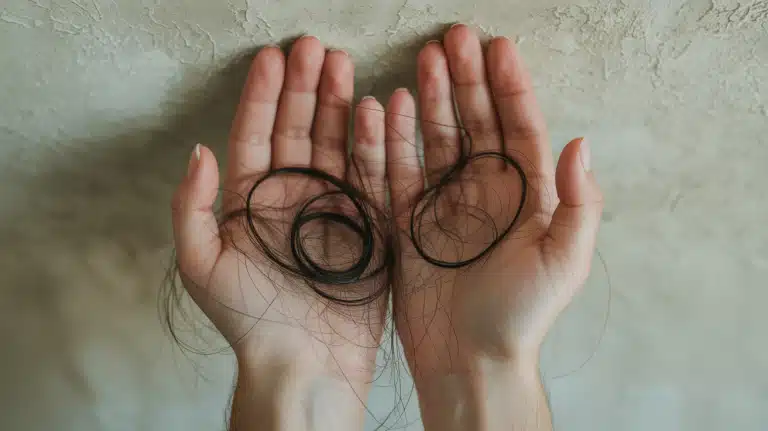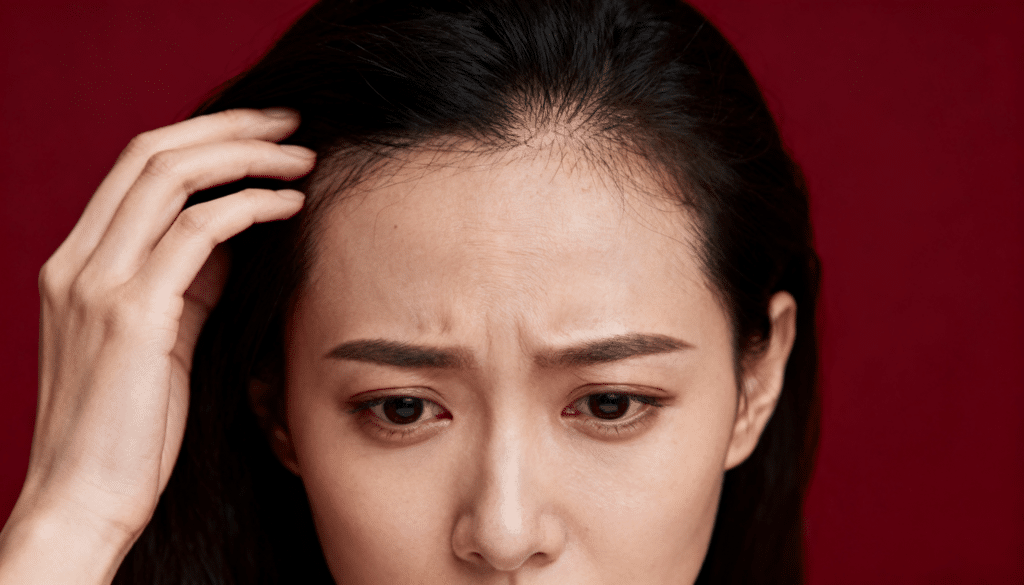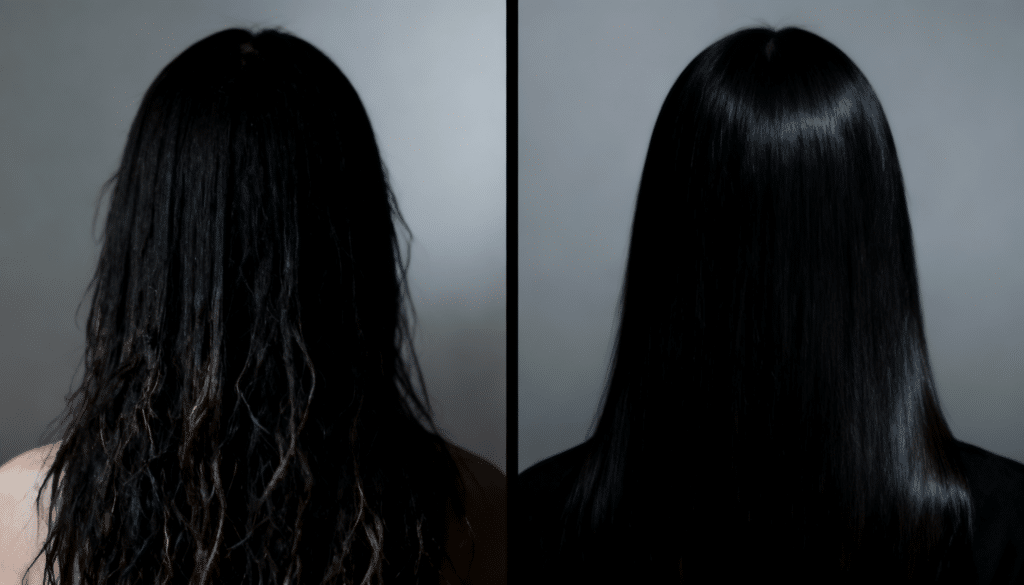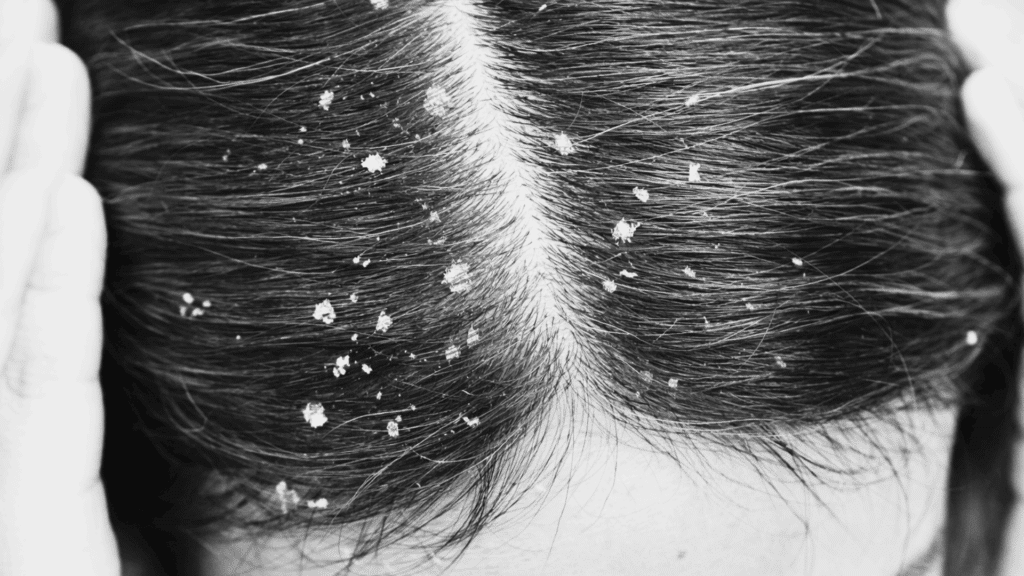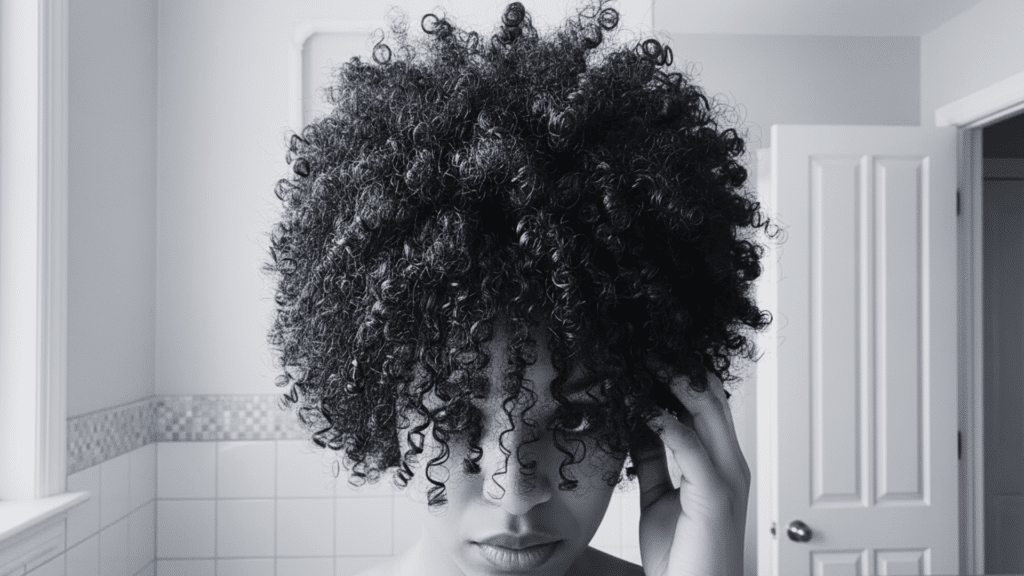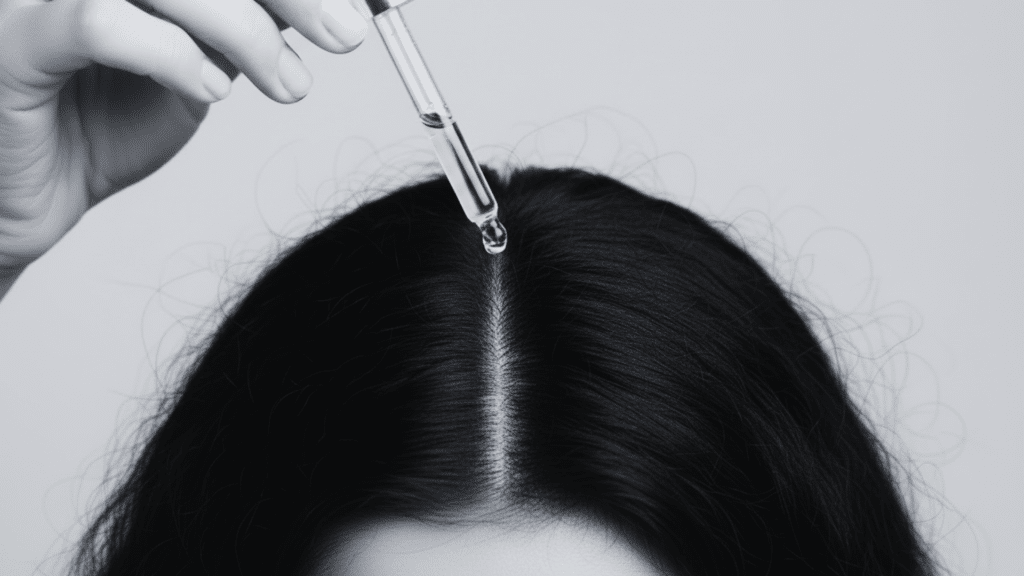Hair loss can be frustrating and confusing, especially when it seems to happen out of nowhere. Many people don’t realize that what they eat, or don’t eat, can directly impact the health of their hair.
Nutritional deficiencies, particularly certain vitamins, are often overlooked culprits behind thinning hair and increased shedding.
Once you identify which vitamin deficiency might be causing your hair loss, you can take targeted steps to address it. Most vitamin-related hair loss is reversible with the right approach and a bit of patience.
This blog will examine which vitamin deficiency causes hair loss, explain the signs of deficiencies, and provide practical remedies through diet to help restore your hair’s health and thickness.
The Importance of Vitamins for Hair Health
Vitamins serve as the building blocks for healthy hair growth, supporting everything from follicle function to strand strength. Without adequate vitamin levels, hair can become weak, brittle, and prone to excessive shedding.
The following is how key vitamins support hair health:
- Cellular Energy Production: B vitamins help convert nutrients into energy that hair follicles need for active growth phases
- Protein Synthesis: Vitamins aid in creating keratin, the primary protein that makes up hair strands
- Blood Circulation: Certain vitamins improve blood flow to the scalp, ensuring follicles receive oxygen and nutrients
- Antioxidant Protection: Vitamins C and E protect hair follicles from damage caused by free radicals and environmental stress
- Hormone Regulation: Some vitamins help balance hormones that directly influence hair growth cycles
- Iron Absorption: Vitamin C enhances iron uptake, which is essential for carrying oxygen to hair follicles
- Collagen Production: Vitamins support collagen synthesis, strengthening the hair shaft and improving overall hair structure.
Which Vitamin Deficiency Causes Hair Loss?
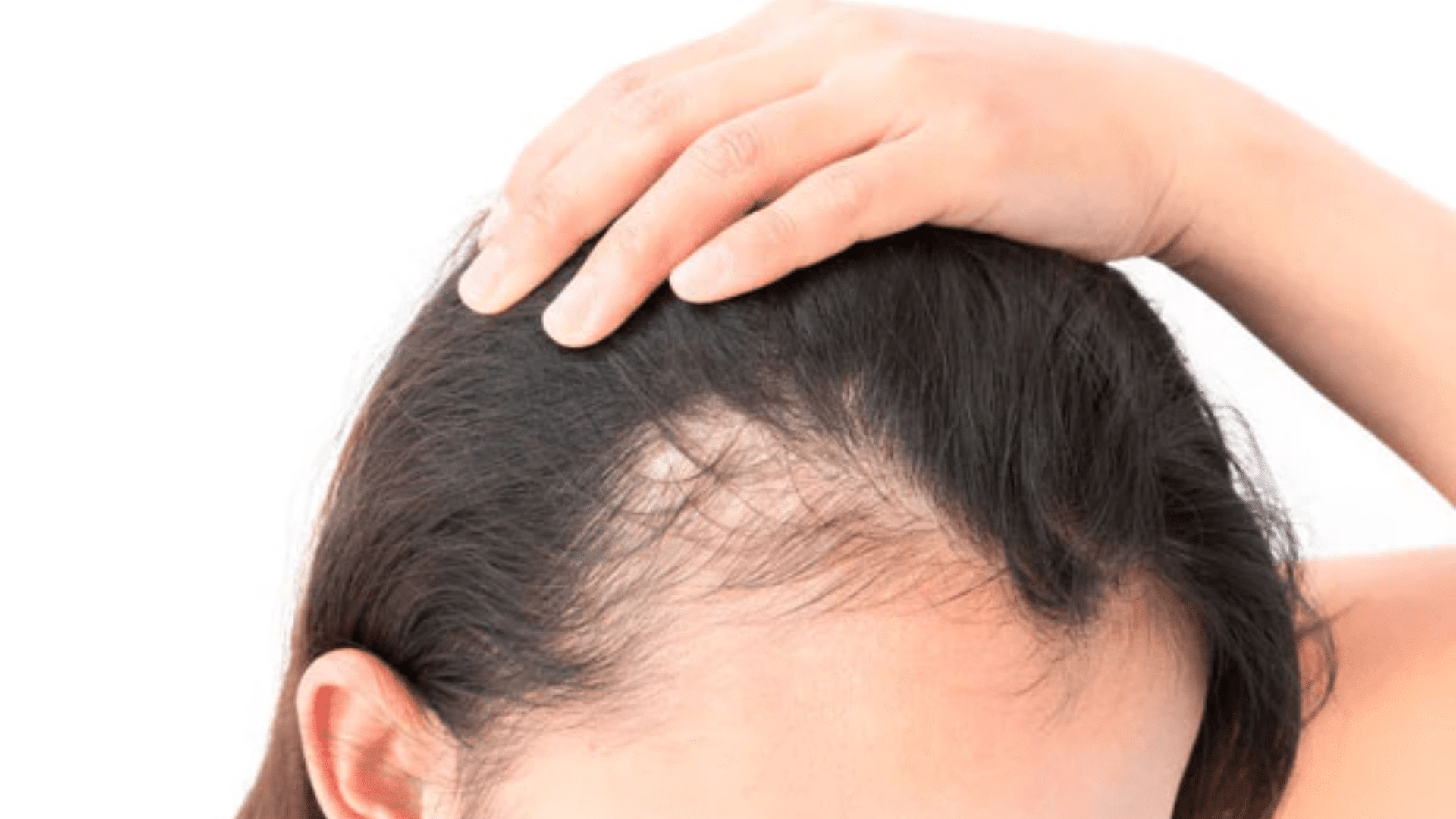
Several specific vitamin deficiencies have been directly linked to hair loss, each affecting hair growth through different mechanisms.
Understanding these connections can help you identify potential nutritional gaps and take targeted action to restore your hair’s health. The following are answers to your question: Which vitamin deficiency causes hair loss
1. Vitamin D Deficiency
Vitamin D plays a crucial role in hair follicle cycling and the creation of new follicles. Research shows that people with alopecia often have significantly lower vitamin D levels than those with healthy hair.
This vitamin acts like a hormone, regulating genes involved in hair growth and follicle development. Deficiency can push hair follicles into a prolonged resting phase, leading to diffuse thinning across the scalp.
Sun exposure, fatty fish, and fortified foods can help maintain adequate levels for optimal hair health.
2. Vitamin A Deficiency
Vitamin A is essential for cell growth and differentiation, including hair follicle cells. It also helps produce sebum, the natural oil that keeps hair moisturized and protected.
However, both deficiency and excess can cause hair loss, making balance crucial. Insufficient vitamin A leads to dry, brittle hair that breaks easily, while too much can push follicles into a resting state prematurely.
Sweet potatoes, carrots, spinach, and liver provide healthy amounts of this vital nutrient without risk of toxicity when consumed through whole foods.
3. Vitamin E Deficiency
Vitamin E acts as a powerful antioxidant, protecting hair follicles from oxidative stress and free radical damage that can impair growth.
This vitamin also improves blood circulation to the scalp, ensuring follicles receive adequate nutrients and oxygen. Deficiency is relatively rare but can occur in people with fat malabsorption disorders or extremely low-fat diets.
Studies show that vitamin E supplementation can increase hair growth in people with hair loss. Nuts, seeds, vegetable oils, and leafy greens are excellent sources of this protective vitamin.
4. Vitamin B12 Deficiency
Vitamin B12 is vital for red blood cell formation and DNA synthesis, both crucial for healthy hair growth. Deficiency reduces oxygen delivery to hair follicles, leading to weak, thin hair and increased shedding.
This deficiency is common among vegetarians, vegans, and older adults due to decreased absorption. Symptoms often include fatigue and weakness alongside hair loss.
B12 deficiency-related hair loss typically affects the entire scalp rather than specific areas. Animal products, fortified cereals, and nutritional yeast can help maintain adequate levels for optimal follicle function.
5. Biotin (Vitamin B7) Deficiency
Biotin is perhaps the most well-known vitamin for hair health, playing a key role in keratin production, the protein that makes up hair strands.
While true biotin deficiency is uncommon, it can cause significant hair loss, brittle hair, and changes in hair color. Pregnancy, certain medications, and excessive raw egg consumption can increase deficiency risk.
People with biotin deficiency often experience hair loss alongside skin rashes and brittle nails. Eggs, nuts, seeds, and sweet potatoes provide biotin naturally, supporting strong, healthy hair growth from within.
6. Vitamin C Deficiency
Vitamin C is essential for collagen synthesis, which strengthens hair structure and supports follicle health. It also enhances iron absorption, another crucial nutrient for hair growth.
Severe deficiency leads to a condition called scurvy, characterized by hair loss, among other symptoms. Even mild deficiency can contribute to weak, brittle hair that breaks easily.
Vitamin C also acts as an antioxidant, protecting follicles from damage. Citrus fruits, berries, bell peppers, and broccoli provide abundant vitamin C to support healthy hair growth and prevent deficiency-related hair loss.
7. Riboflavin (Vitamin B2) Deficiency
Riboflavin plays a crucial role in energy metabolism and cellular function, including within hair follicles. This B vitamin helps convert nutrients into energy that follicles need for active growth phases.
Deficiency can lead to hair loss, along with skin problems and fatigue. While severe deficiency is rare in developed countries, marginal deficiency may contribute to hair thinning.
Riboflavin also works synergistically with other B vitamins to support overall hair health. Dairy products, lean meats, eggs, and leafy greens are excellent sources of this essential vitamin for maintaining healthy hair growth.
8. Folate (Vitamin B9) Deficiency
Folate is essential for DNA synthesis and cell division, processes that are particularly active in rapidly growing hair follicles.
Deficiency can slow hair growth and lead to premature graying, as folate helps maintain the cells responsible for hair pigmentation. Pregnant women and people with certain medical conditions are at higher risk of folate deficiency.
Leafy greens, legumes, fortified grains, and asparagus provide folate naturally, supporting consistent hair growth and maintaining hair color
How Vitamin Deficiency Causes Hair Loss
Vitamin deficiency hair loss can disrupt the hair growth cycle in several ways. Hair follicles need constant nourishment to stay active. When vitamins run low, follicles can’t produce healthy hair strands.
The growth phase shortens, and the hair enters the resting phase too early. This leads to increased shedding and slower regrowth. Some deficiencies weaken the hair shaft itself. Strands become brittle and break easily.
Poor circulation is another factor. Without proper vitamins, blood flow to the scalp decreases. Follicles don’t get enough oxygen or nutrients. They eventually shrink or become dormant.
Protein production also suffers. Hair is mostly keratin, a protein that requires specific vitamins to form properly. Deficiencies result in weak, thin hair that falls out more readily.
Signs You Might Have a Vitamin Deficiency Causing Hair Loss
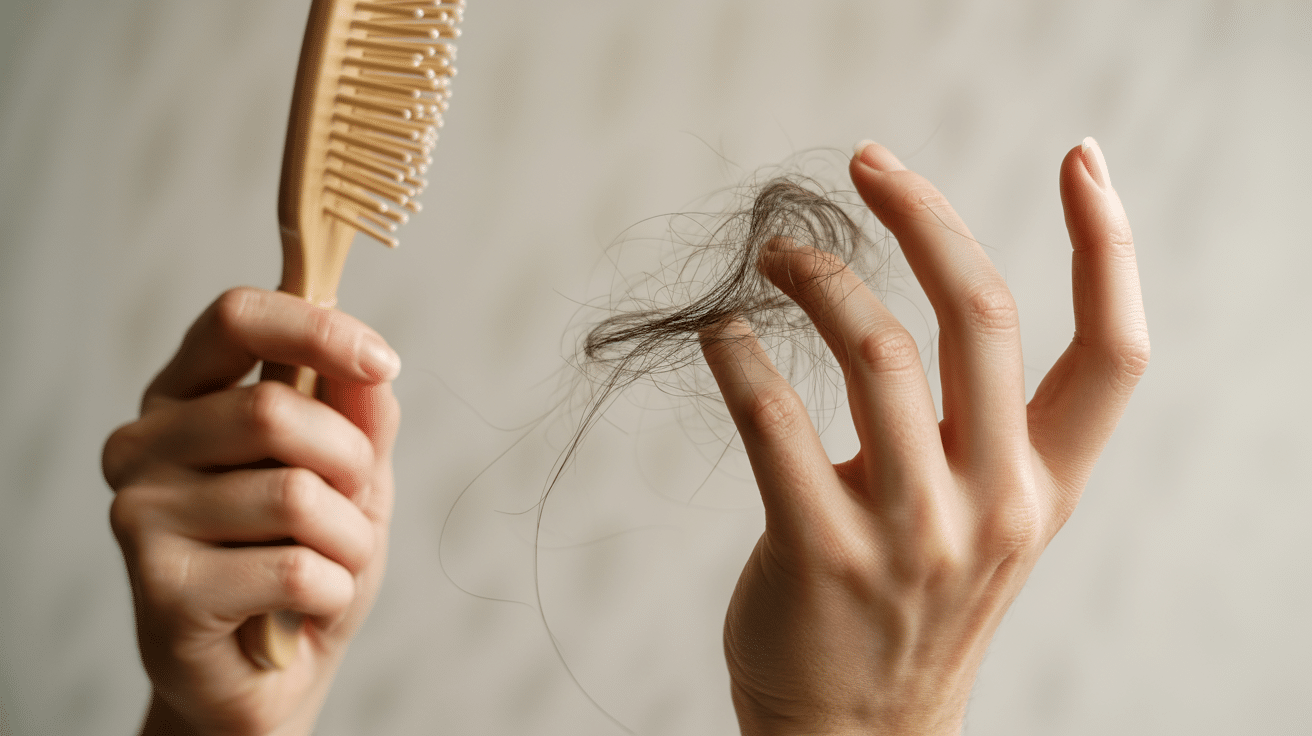
Recognizing the warning signs of vitamin deficiency-related hair loss can help you address the problem before it worsens. Your body often provides clear signals when nutritional gaps are affecting your hair health.
1. Excessive Hair Shedding in the Shower or on Your Pillow
Finding clumps of hair in the drain or waking up to strands on your pillowcase indicates more than normal shedding.
While losing 50-100 hairs daily is typical, vitamin deficiencies can increase this to 150-200 strands, creating noticeable thinning over time.
2. Slower Hair Growth Than Usual
Hair that seems stuck at the same length for months may signal nutrient deficiencies. Healthy hair grows about half an inch monthly, but vitamin shortages can slow this process significantly.
You might notice your hair taking much longer to recover from cuts or styling damage.
3. Brittle, Weak Hair That Breaks Easily
Hair that snaps during brushing or feels unusually fragile often reflects poor vitamin status. Deficiencies weaken the hair shaft structure, making strands prone to breakage even with gentle handling.
This brittleness typically starts at the ends and works its way up toward the roots.
4. Thinning Hair at the Crown or Temples
Gradual thinning in these areas, especially when combined with other symptoms, may indicate vitamin deficiencies rather than genetic hair loss.
Unlike pattern baldness, nutrition-related thinning often affects the entire scalp and can be reversed with proper supplementation and dietary changes over time.
5. Dull, Lackluster Hair Without Its Usual Shine
Healthy hair reflects light naturally, creating shine and vibrancy. Vitamin deficiencies can leave hair looking flat, dull, and lifeless, regardless of the styling products used.
This lack of luster often accompanies changes in hair texture, making strands feel coarse or unusually dry to the touch.
6. Changes in Hair Texture or Color
Sudden shifts in how your hair feels or looks can signal nutritional gaps. Hair might become coarser, finer, or develop an unusual texture.
Some people notice premature graying or changes in natural color intensity, as certain vitamins play crucial roles in maintaining hair pigmentation and structural integrity.
Restoring Vitamin Levels to Promote Hair Growth Through Diet
The most effective way to address vitamin deficiency-related hair loss is through a balanced, nutrient-rich diet.
Whole foods provide vitamins in their most bioavailable forms, allowing your body to absorb and utilize them more efficiently than synthetic supplements alone.
| Vitamin | Best Food Sources | Hair Benefits |
|---|---|---|
| Vitamin D | Fatty fish (salmon, mackerel), egg yolks, fortified milk, mushrooms | Stimulates hair follicles and supports new growth cycles |
| Vitamin B7 (Biotin) | Eggs, nuts, seeds, sweet potatoes, spinach, avocados | Strengthens the hair shaft and improves keratin production |
| Vitamin B12 | Meat, fish, dairy products, fortified cereals, nutritional yeast | Supports red blood cell formation for scalp circulation |
| Vitamin C | Citrus fruits, berries, bell peppers, broccoli, strawberries | Enhances iron absorption and collagen synthesis |
| Vitamin A | Carrots, sweet potatoes, spinach, kale, liver | Regulates cell growth and sebum production |
| Vitamin E | Nuts, seeds, vegetable oils, leafy greens, avocados | Protects hair follicles from oxidative stress |
| Folate (B9) | Leafy greens, legumes, fortified grains, asparagus | Supports DNA synthesis and cell division in follicles |
| Iron | Red meat, spinach, lentils, tofu, dark chocolate | Carries oxygen to hair follicles for healthy growth |
Does Taking Too Many Vitamins Cause Hair Loss?
Yes, excessive vitamin intake can trigger hair loss, creating the opposite effect of what you’re trying to achieve. This condition, called hypervitaminosis, occurs when fat-soluble vitamins like A, D, E, and K accumulate to toxic levels in the body.
Vitamin A toxicity is particularly notorious for causing hair loss, as excess amounts can push follicles into a resting phase prematurely.
Too much selenium, iron, or even biotin can also disrupt normal hair growth cycles. Water-soluble vitamins are generally safer since they’re excreted through urine, but mega-doses can still cause problems.
The key is finding the right balance, enough to support hair health without overwhelming your system with unnecessary excess
When to Consult a Healthcare Provider
If you notice persistent hair loss lasting more than three months despite dietary improvements, it’s time to consult a healthcare provider.
They can perform blood tests to identify specific vitamin deficiencies and rule out underlying conditions like thyroid disorders or autoimmune diseases that mimic nutritional hair loss.
Seek immediate medical attention if hair loss is sudden, patchy, or accompanied by scalp irritation, redness, or pain.
These symptoms may indicate conditions beyond simple vitamin deficiency. A healthcare provider can also help determine safe supplementation levels and monitor your progress.
Don’t delay if hair loss affects your quality of life or self-esteem; early intervention often leads to better outcomes and faster recovery.
The Bottom Line
Understanding which vitamin deficiency causes hair loss empowers you to take control of your hair health. The vitamins your body needs for strong, healthy hair are readily available through a balanced diet.
Remember that hair restoration takes time, typically three to six months, to see significant improvements. Patience is essential as your follicles adjust to better nutrition and begin producing stronger strands.
With the right approach, you can restore not only your hair’s thickness and vitality but also support your body’s overall well-being.



